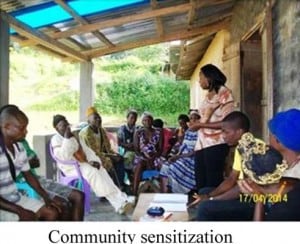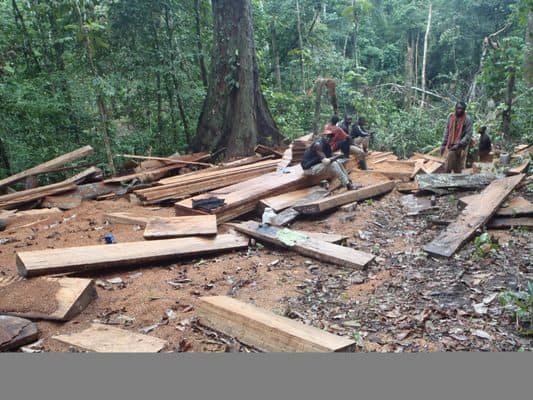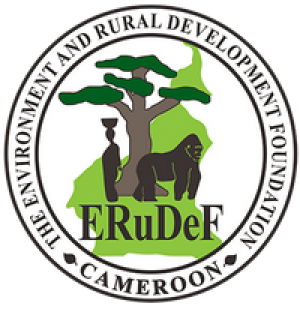[one_third] [/one_third]Limited community involvement in the management of natural resources has been identified as one of the principal factors thwarting conservation efforts in the Lebialem Highlands Conservation Complex (LHCC).
[/one_third]Limited community involvement in the management of natural resources has been identified as one of the principal factors thwarting conservation efforts in the Lebialem Highlands Conservation Complex (LHCC).
The LHCC is surrounded by 20 communities which are not involved in the management of natural resources in their area. The communities however think that government’s collaborative management policy ends on paper since they are hardly ever involved in the management of their natural resources.
The Cameroon government through the Ministry of Forestry and Wildlife (MINFOF) is solely involved in the management of natural resources in the conservation complex. They use mostly repressive measures to protect these resources and see community members as illegal exploiters of their own resources. There is very little or no sensitization/involvement of the communities due to lack of necessary logistic and financial resources. Thus, community members are left in ignorance pertaining to the management of natural resources in the Conservation complex
This has resulted to habitat fragmentation and deforestation (illegal logging) and species scarcity.
[one_third] [/one_third]LHCC harbours a protected area; Tofala Hills Wildlife Sanctuary created in September 2014 and two proposed protected areas; Mak-Betchou Wildlife Sanctuary and the Mount Bamboutous Integral Ecological Reserve. These areas harbours a population of near-endemic large mammal species like the Cross River Gorilla (Gorilla gorilla dielhi), Nigeria-Cameroon chimpanzee (Pan troglodytes ellioti), Drill (Mandrillus leucophaeus) and for birds the Bannerman Turaco (Turaco bannermani). It is also rich in botanical species of ecological, cultural and economic importance. It is one Cameroon’s bird watching area.
[/one_third]LHCC harbours a protected area; Tofala Hills Wildlife Sanctuary created in September 2014 and two proposed protected areas; Mak-Betchou Wildlife Sanctuary and the Mount Bamboutous Integral Ecological Reserve. These areas harbours a population of near-endemic large mammal species like the Cross River Gorilla (Gorilla gorilla dielhi), Nigeria-Cameroon chimpanzee (Pan troglodytes ellioti), Drill (Mandrillus leucophaeus) and for birds the Bannerman Turaco (Turaco bannermani). It is also rich in botanical species of ecological, cultural and economic importance. It is one Cameroon’s bird watching area.
The area is inhabited by people, drawn from different ethnic groups of various origins with hunting, farming, and small-scale logging and Non-timber forest products (NTFPs) collection as principal occupations. These activities are gradually assuming magnitudes that threaten to ruin the biodiversity of the Lebialem Highlands Conservation Complex, especially animals and trees of economic value, due to the high demand for bush meat for protein and timber
[one_half]

The National Biodiversity Strategy and Action Plan of 1998 with reference to the montane ecosystems has as objectives to ensure the sustainable management and exploitation of montane biodiversity, build, develop and strengthen capacity at all levels to manage and protect montane forests ecosystems biodiversity and its component parts as well as promote traditional knowledge of montane biodiversity and its component parts and their socio-economic importance and values.
Cameroonian Non-profit Conservation Organization, the Environment and Rural Development Foundation (ERuDeF), has been working in this area for the past 16 years, facilitated the creation of the LHCC and the Tofala Hills Wildlife Sanctuary.
This nonprofit organization holds that there is a need to develop a project for the active involvement of community members in the management of natural resources and restoration of the ecological integrity of the area which is the base of their livelihoods.
